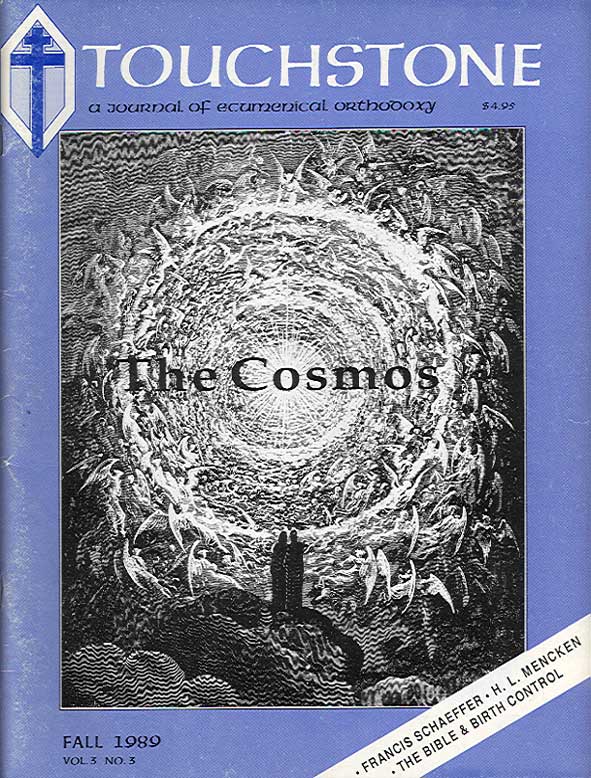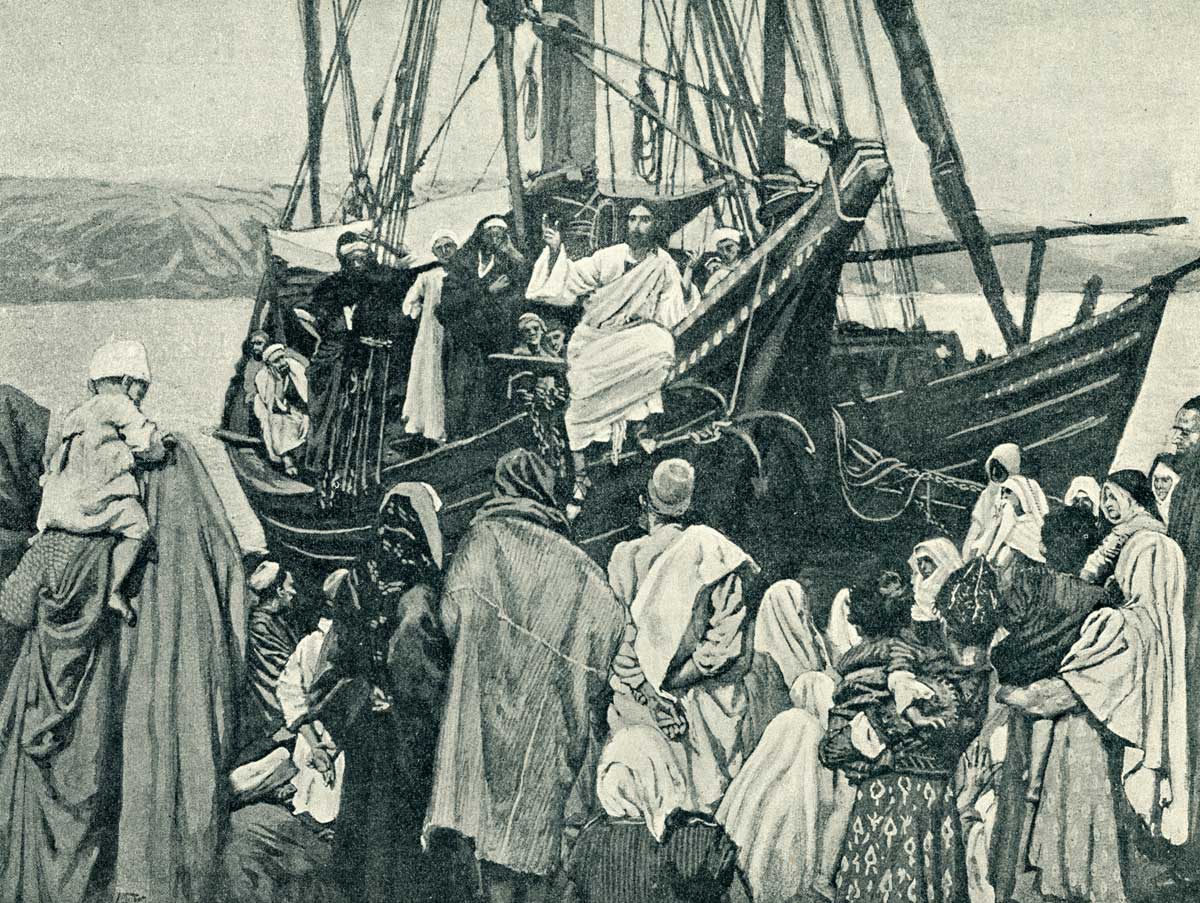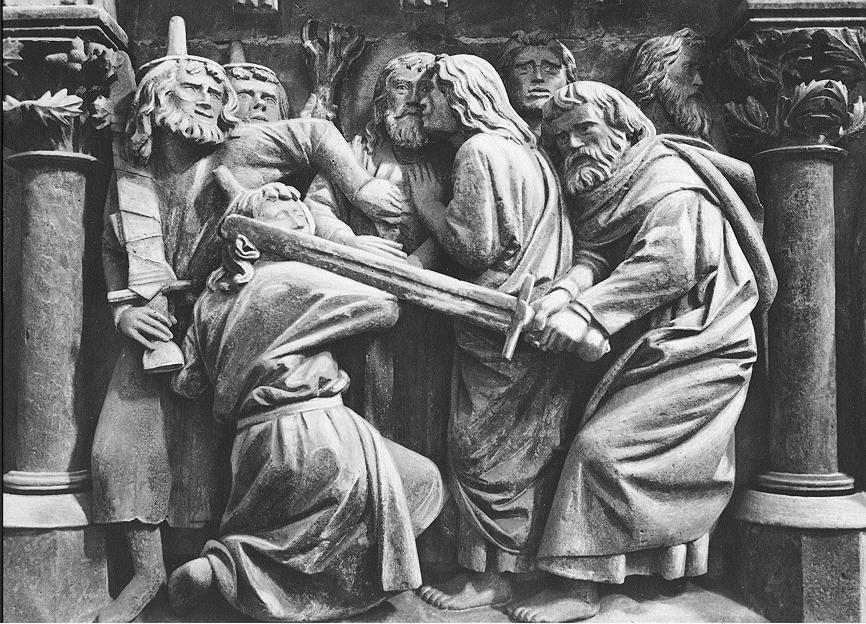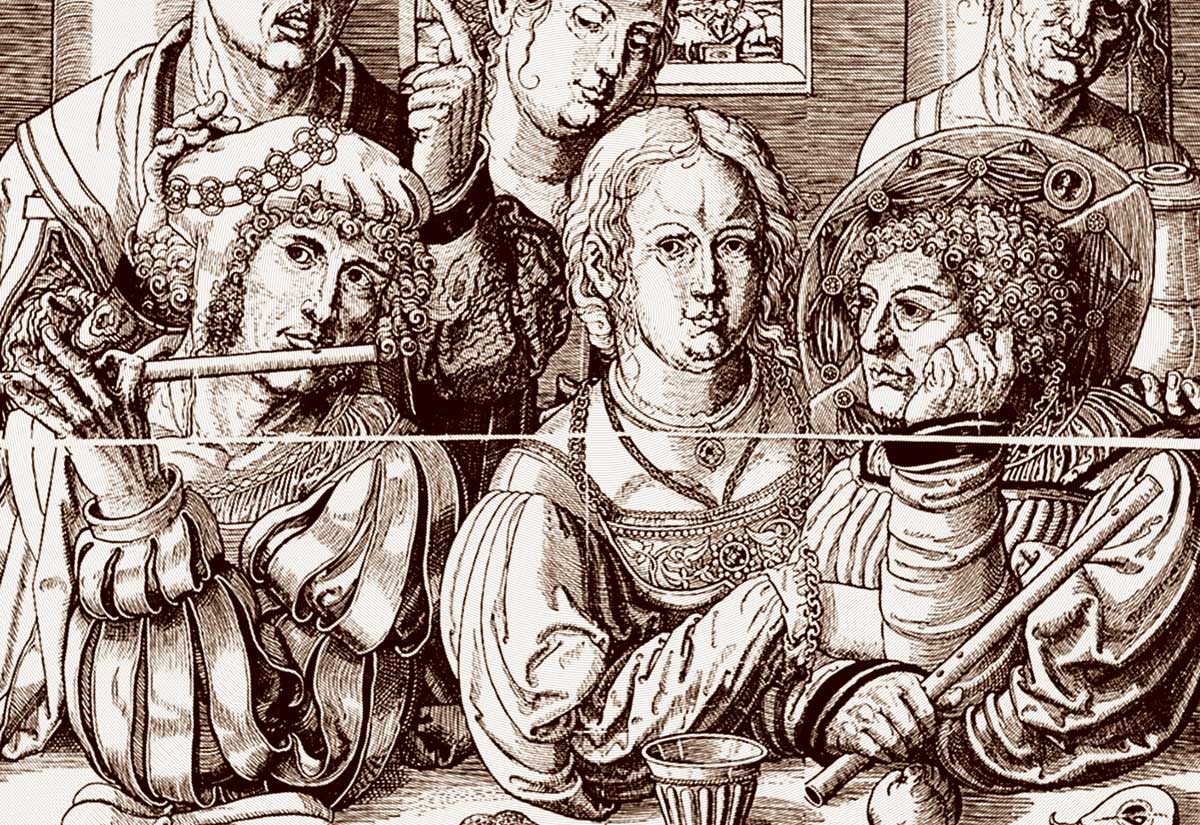The Bible & Birth Control
The Bible and Birth Control
by Charles D. Provan
Monongahela, PA: Zimmer Printing, 1989
97 pp., $5.95
reviewed by Scott Hahn
As a recent convert to Roman Catholicism, I am frequently asked by friends and family to explain how my theological studies led me out of the Protestant ministry into the Catholic Church. After tossing out a few of their favorite stock objections and discovering to their suprise that at least one Catholic has solid scriptural rebuttals, they usually back off. After all, listening to a convert-friend “explain” his new-found faith can put two otherwise close friends at cross purposes (“like trying to take a sip from a fire hydrant,” my spouse says). Inevitably, the questions then move from the polemical to the personal: “How do you feel now that you’re one of them?” And then like clockwork, they raise THE ISSUE: “You know, Scott, that your fellow-Catholics don’t really buy into all that stuff; take what the popes say about birth control, for instance. . . .” All at once, you face the convergence of all seemingly insurmountable obstacles (except, I suppose, for Mary and purgatory): the authoritarian tyranny of anti-biblical tradition imposed by an infallible celibate on a bunch of hedonistic hypocrites who ignore him anyway!
In response, one may be tempted to defend the Church’s prohibition of contraception by rattling off relevant evidence from biblical and patristic teaching, the Thomistic natural law tradition, papal documents like Humanae Vitae, and, most recently, Pope John Paul II on the “theology of the body.” After all, such a response would underscore the impressive convergence of evidences from diverse veiwpoints. However, such an approach is highly impractical with all but the most intellectual and patient of folk. Instead, I prefer simply to point out to my Protestant friends how this obviously unpopular and seemingly impractical prohibition has actually been a conspicuous element of the common core of faith and morals shared by Cahtolics and Protestants alike, that is, until the present century. And I am pleased to find support in a recent book by an evangelical Protestant, Mr. Charles D. Provan, that makes such an irenic repsonse practically irresistible.
In his new work of 97 pages, The Bible and Birth Control (available from the publisher for $5.95 plus $1.50 shipping), Mr. Provan lays out what could be termed the “traditional Protestant case against artificial birth control: first, by showing the biblical grounds; second, by answering key objections; and third, by quoting biblical expositions taken from a list of 100 Protestant theologians, commentators, pastors, etc. All of the greats are mentioned: Luther, Calvin, Bullinger, Bucer, Ursinus, Baxter, Owen, Mather, Wesley, Spurgeon, Leupold, et al.; from all the “traditions within Protestantism: Luther, Reformed-Presbyterian, Anglican-Episcopalian, Puritan, Methodist, Baptist, Congregationalist, etc. His conclusion is not that merely many or even most have opposed birth control: “We will go one better, and state that we have found not one orthodox theologian to defend Birth Control before the 1900’s. NOT ONE!” (p. 63—author’s emphasis). He goes on to show that the reasons for twentieth-century changes are anything but clear and compelling from a scriptural perspective; rather, they appear to be conditioned and ground by decadent Western culture. In sum, the overall effect of Provan’s book is powerful, for both Protestants and Catholics.
Here is a convert of a more limited type. And like the typical convert, he’s out to get others. For instance, his own pastor, Rev. Todd Jaussen, who candidly admits in the introduction that the originally answered Provan’s questions about whether or not contraception is morally acceptable “with typical 20th-century arrogance and wisdom—sure it is!” Provan’s book has changed the good pastor’s mind. For his parishioner’s arguments seem to have provided him with a solid biblical case against contraception, at the same time they showed him the connection between the recent Protestant acceptance of conraception (in the mid-20th century) and the gradual acceptance of abortion and homosexuality within the majority of mainline Protestant denominations (in the last quarter century).
A couple of deficiencies may be noted. First, although citing several Protestant theologians who approve of natural means of birth control for exceptional/extraordinary reasons (e.g., A. W. Pink, T. F. K. Laetsch, J. H. C. Fritz), Provan nowhere states his own acceptance of something like “natural family planning” (although he expresses his openness in private conversation). Given the real dangers for some women, this reticence seems to lack pastoral balance, no matter how much the goodness of God’s gift in children is rightly stressed. Second, Provan cannot help but choose to exclude non-Protestant theologians (except for Sts. Augustine and Epiphanius), so a certain one-sidedness may be perceived. Nevertheless, to do otherwise would not only involve and unwieldy number of Catholic/Orthodox authorities, even more, it would probably prove to be counter-productive, given his Evangelical Protestant readership. Thus, the unfortunate omission is strategically necessary and proper.
In setting forth “Nine Reasons Why the Bible Prohibits Birth-Control,” Provan relies heavily on the exegesis of Luther and Calvin. It is curious and not a little ironic to note how the stringent tone of the Reformers far exceeds papal statements in our own time. Yet the popes are commonly regarded as harsh and unyielding. At the same time, however, the zealous ardor of Luther and Calvin is what characterized their own greatness and genius, not to mention the tenor of both sides in the sixteenth-century Protestant-Catholic debates. It appears to be Provan’s intention in Part Two, “Two Alternate Viewpoints and Their Rebuttals,” to revive such spirited exchange. Only this time, many traditional Protestants will stand shoulder to shoulder with Catholics!
Sad to say, such a book will probably have little effect on most Protestants and Catholics in twentieth-century America. Nevertheless, among sincere “Bible-believers” there is increasing openness and attraction to precisely those Catholic moral teachings that strike many snug cradle-Catholics as offensive and outmoded, if not plain wrong. As a result, Protestants are assuming more and more leadership de facto in the pro-life and pro-family movements, for example, simply by thinking through the sometimes difficult implications of the Lordship of Jesus Christ in everyday life.
Thus, while the “pick ’n choose” cafeteria Catholics berate/tolerate the pope, down the street a handful of the faithful stand outside an abortuary clutching their rosaries, outnumbered by every kind of Pentecostal, Fundamentalist, and Evangelical, many of whom share a ravenous appetite for God’s Word, the Bread of Life, no matter from what table it is served. Consequently, you may hear them discussing conservative Protestant titles by authors like Mary Pride, Charles Ryrie, Elisabeth Elliott, William Heth, Beth Spring, and now Charles Provan—arguing from Scripture against contraception, divorce and remarriage, women’s ordination, euthanasia, and a host of other vital issues on which they take stands normally considered to be distinctively Romanist. For them, of course, it’s just loyalty to Scripture. But with the help of the Holy Spirit, which they have in abundance, there is solid and substantial common ground being cleared upon which authentic working alliances may be built for the advancement of Christ’s kingdom, and who knows what else! “But with God all things are possible.” (Mt. 19:26)
Scott Hahn is Assistant Professor of Theology, College of St. Francis, Joliet, Illinois.
subscription options
Order
Print/Online Subscription

Get six issues (one year) of Touchstone PLUS full online access including pdf downloads for only $39.95. That's only $3.34 per month!
Order
Online Only
Subscription

Get a one-year full-access subscription to the Touchstone online archives for only $19.95. That's only $1.66 per month!
bulk subscriptions
Order Touchstone subscriptions in bulk and save $10 per sub! Each subscription includes 6 issues of Touchstone plus full online access to touchstonemag.com—including archives, videos, and pdf downloads of recent issues for only $29.95 each! Great for churches or study groups.
Transactions will be processed on a secure server.
more on bible from the online archives
more from the online archives
calling all readers
Please Donate
"There are magazines worth reading but few worth saving . . . Touchstone is just such a magazine."
—Alice von Hildebrand
"Here we do not concede one square millimeter of territory to falsehood, folly, contemporary sentimentality, or fashion. We speak the truth, and let God be our judge. . . . Touchstone is the one committedly Christian conservative journal."
—Anthony Esolen, Touchstone senior editor













